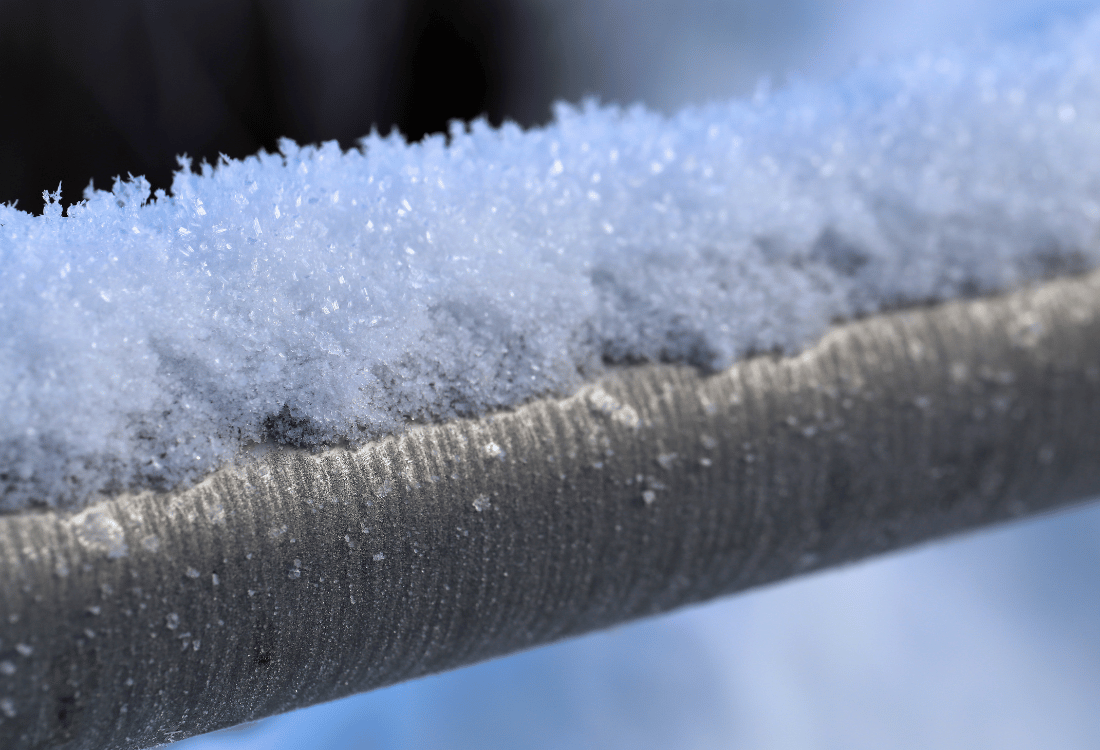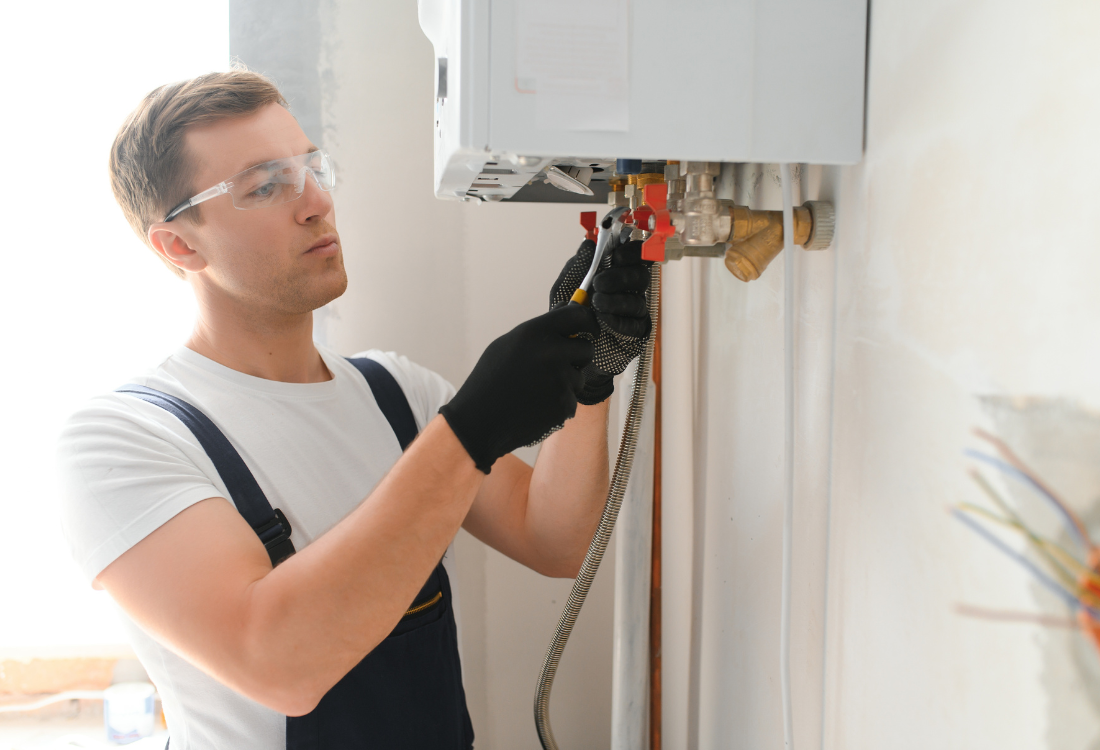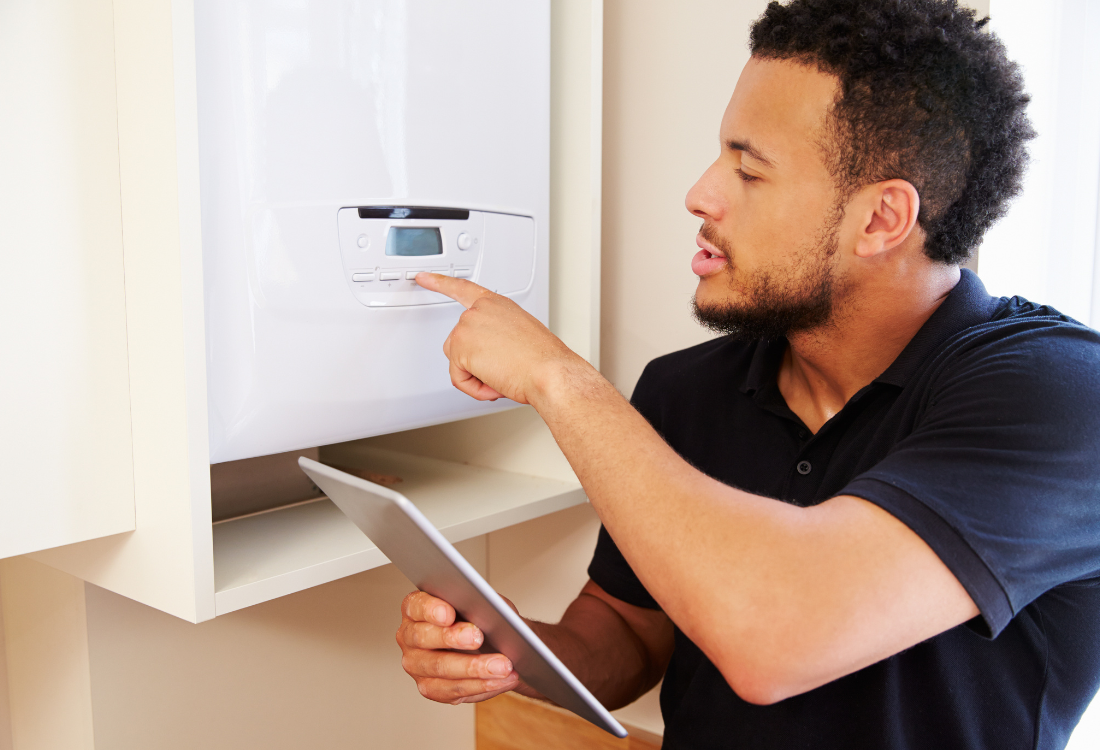Winter is the time when boilers start to have problems. In most cases, these issues are completely avoidable. A few basic steps are all it takes to prepare boilers for winter.
Here’s what you need to do:
1. Learn Your Boiler Fault Codes
The more you know about your boiler, the easier it is to solve any problems. All boilers have a guide that contains a list of boiler error codes. Two very common boiler fault codes in the winter months indicate pressure drops and frozen condensate pipes although the issue can be as simple as a checking the gas supply is on. In most cases low pressure will provide a fault code however an ignition fault code may be an indicator of a frozen condensate pipe if the weather permits. Please be aware that there is no code that will indicate frozen condensation directly. If you know the boiler fault codes, you can save both time and money.
2. Check Your Thermostats
The thermostat is the automatic ‘on/off’ switch for your boiler. When set correctly, a thermostat will ensure that your home is never too cold, and never too hot . This helps with energy efficiency and comfort, and prevents unnecessary stress on the heating system. Things to look out for are inconsistent temperatures or unresponsive controls, which are usually the result of a dead battery. Replacing the thermostat battery each year is one simple way to make sure your thermostat is working properly.
3. Prepare External Boiler Pipes For Winter
Burst pipes are a routine and expensive winter problem. Thankfully, frozen condensate pipes are also one of the easiest issues to avoid. Simple foam insulation will protect external boiler pipes from freezing, even during extreme cold snaps. If you have a boiler in your garage, or if it is outdoors, foam insulation is an absolute must to keep your condensate pipes safe and energy-efficient during the winter.
4. Understand Boiler Pressure
Checking the boiler pressure might sound like a job for an expert, but in most cases, you can keep an eye on it at home. The pressure gauge on a boiler is normally found on the front, underneath or on a digital screen, please note that this does vary by manufacturer. Boiler pressure often drops during the winter, so it is important to check it daily. The ideal pressure is between 1 and 1.5 Bars. A pressure drop means that your boiler is less efficient than it should be. Alternatively, if your boiler consistently shows high pressure even after the safety devices have rectified this, then it’s time to call an expert. If you are worried about your boiler pressure, the safest option is to pick up the phone.
5. Look After Your Boiler
Boilers work hard to keep our houses warm, so it’s no surprise that they benefit from an annual service. Just like any piece of machinery, servicing can help to extend the life of a boiler, can ensure that the boiler is working at maximum efficiency, and can prepare your boiler for the winter. Thankfully, a green stamp of approval from a qualified boiler engineer is all you need to ensure that there are no expensive surprises waiting for you this winter.
Next Steps
At Trusted Boilers, we know that winter can be one of the most difficult times for boilers. To ensure that your boiler is prepared for the winter, and to avoid an expensive headache, arrange a service by calling 0208 088 9899.
Image Source: Canva
Subscribe to our blog
You May Also Like
These Related Stories

A Homeowners Quick Guide On How To Stop Condensate Pipe Freezing

3 Main Boiler Fault Codes To Look Out For During Winter



